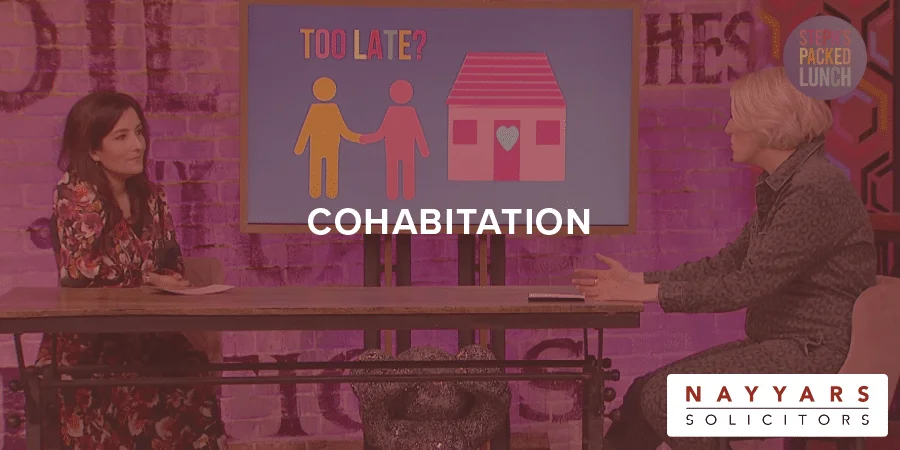Her Husband out of the House in the UK?
Every marriage goes through periods of strain. At best, these times can make you feel like you need some time alone and at worst, separation and divorce may seem like the only option.
Regardless, in certain circumstances, a wife may feel like she wants to kick her husband out of the house.
Whether you are the wife in this scenario or the husband, it’s important for all parties to know exactly what their legal rights are. With that in mind, we’re going to explore what you can and can’t do when it comes to kicking a spouse out of a home.
Depriving Access to the Home

One of the most common ways for someone to kick their partner out of the house is by simply changing the locks while they’re out, but is this legal?
In reality, if the property is jointly owned (meaning two or more people hold legal title to the property) there is little to stop either owner changing the locks.
However, what you cannot do is deprive access to the property by, for example, not giving your spouse keys to the new locks.
If you do deprive access to the property, you may find your husband applies to the court for an occupation order to allow them back into the house and the continued use of its facilities.
In short, then you cannot simply kick your husband out of the house. Instead, you will need to apply for your own occupation order from the court, which will determine who can occupy the property. We will come onto that in more detail in the next section but first…
What If the Husband Isn’t on the Deed?
If your husband is not on the title deeds for the property, you may think you have more scope to remove him from the property without requiring a court order.
However, even a spouse who is not on the title deeds (known as a non-entitled spouse) cannot simply be kicked out as they can also apply for an occupation order from the court.
Furthermore, a non-entitled spouse may also have registered matrimonial home rights for the property, meaning they cannot be forced to leave without an occupation order and you cannot sell the property without them knowing about it.
How to Kick Your Husband Out of the House Legally?

As we alluded to, if you want to remove a husband from your property you will need to apply to the court for an occupation order. This is a type of injunction.
The process of applying for an occupation order is relatively straightforward and made up of two elements. The first of these requires you to provide basic information including your:
- Your Name
- Your Contact details
- Your ex-partner’s name
- Your ex-partner’s contact details (if you have them)
- Details of your mortgage (if you have one)
- Your reasons for applying
Alongside this, you will also need to provide a witness statement in which you can lay out why you need an occupation order. At this point, you may be unsure exactly what basis you have for requesting an occupation order, in which case you should speak to a professional solicitor who can help you put together your application.
You will need to send three copies of your application into the court, one of which will be sent to your spouse so they can provide their own witness statement.
If you are concerned about your partner knowing your current address, you can keep this confidential and submit the forms without disclosing your address. However, your address will need to be on the court file.
A date will be set for you to attend your nearest family court with your spouse and any solicitors either party has instructed. If you are concerned about being in the same room as your spouse, you can request special measures from the court.
The hearing will return one of the following results:
- An interim occupation order is made until a final determination about whether the order is required
- The court makes an occupation order in part, setting out how the parties should reside under the same roof but separately
- The court needs more information before deciding whether an order should be made
If an occupation order is issued, it is worth noting that it may not be exactly what you expect. The court has discretionary powers and so may not order your husband to leave the property but, for example, only use certain facilities at certain times.
These rules will be defined in the order and if they are breached and there is a power of arrest attached to the order then you may have recourse to call the police, in which the other party may be arrested.
In Cases of Domestic Violence

The process for applying for an occupation order can be lengthy. However, the court recognises that where an individual or their dependents may be under threat, the process needs to be quicker.
If you’re in this situation, you can ask the court to ‘hear your application without notice being given to the respondent’. This is sometimes called an emergency order.
To do this you will need to explain as part of your witness statement that your spouse is likely to:
- Actively try to avoid the occupation order
- Physically harm you or your dependents
- Stop you from applying for the order if you wait
Aside from an occupation order, victims or potential victims of domestic abuse can also apply for another type of injunction, alongside the occupation order called a non-molestation order.
Non-Molestation Orders
A non-molestation order prevents your spouse from doing certain acts in terms of their violent behaviour towards you. The terms within a non-molestation order include as follows;
- Not to use or threaten unlawful violence against you
- Not to intimidate, harass or pester you
- Not to communicate with you directly or indirectly, whether by telephone, social media, email or in person.
- No, to come within a certain distance of you.
The process of applying for a non-molestation order is the same as applying for an occupation order, although non-molestation is made on an emergency basis and are usually heard without notice. Both applications can be made using the same forms supported by a witness statement.
Can a Wife Kick Her Husband out of The House in the UK?
Generally, the answer is no unless she has obtained an occupation order from the court.
Before considering whether to make such an application, please consult a specialist solicitor who can assist you in drafting your witness statement and give you the best prospects of success.
If you’re concerned that either you or any of your dependents are under threat, speak to the Nayyars team to make sure you have the right solicitor by your side.




















